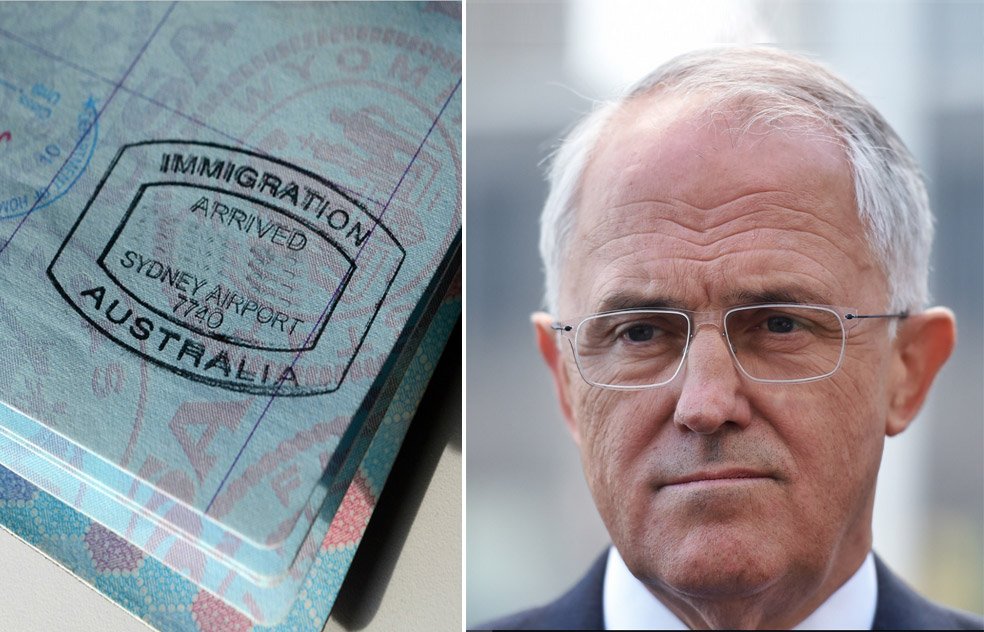
Australian Govt Abolishes The 457 Visa Program Over Fears Of Immigrants Stealing Local Jobs
18 April 2017 12:00 PM GMT
The Australian government abolished the 457 visa program for skilled migrants in order to replace it with a new stricter scheme.
Prime Minister Malcolm Turnbull made the announcement today through a video post.
What is the 457 visa program?
The 457 visa program or the Temporary Work (Skilled) visa (subclass 457) permits Australian and overseas businesses to employ foreign workers for a period of up to four years in skilled jobs where there is a shortage of Australian manpower.
It allows the employment of any number of overseas workers and there is also no limit to the number of times they can travel in and out of Australia. Additionally, the workers can bring their families to work or study.
A 457 worker must be sponsored by their employer or they must enter into a formal labour agreement with the government.
However, businesses first have to advertise the job locally at least four weeks before employing foreign labour.
What are the changes being made?
The 457 visa sub-class will be completely abolished, starting March 2018, and in its place two new visa programs – one 2-year and one 4-year, called Temporary Skill Shortage Visa will be introduced. They will come into force in March next year.
For the 457 visa holders, the Australian government currently gives 650 jobs, however, that number will be reduced by 200 under the new scheme.
Here's 180 jobs that can no longer be worked on a 457 visa. pic.twitter.com/1Met1u9GS4
— Rob Harris (@rharris334) April 18, 2017
Some of its higher requirements are:
- “a higher standard of English”
- “a proper police record, a criminal check”
- a two-year work experience requirement
- “mandatory labor market testing”
(For more information click here)
The new visas will ensure that Australian businesses first look for Australian citizens for jobs and fill gaps by overseas employees only where vacancies are available.
“We’re putting jobs first. We are putting Australians first,” said PM Turnbull in his announcement today.
Furthermore, it will become less simpler for the new visa holders to apply for permanent residency than the current 457 visa holders. There will be lesser chances of permanent residency at the end of the 2-year visa.
Sponsoring overseas employees will also become costlier for Australian businesses, as the fee for a 4-year visa will double to more than $2400 and the fee for a 2-year visa will be $1150.
The new visas are being introduced as the current Australian government feels that its citizens are losing out on jobs to foreigners. In this regard, the government has also been trimming the number of businesses eligible for the 457 visa program.
How do the changes affect India?
As on September 30, 2016, there were 95,757 workers in Australia on primary 457 visas and 76,430 secondary visa holders (members of their family), and a majority of them were from India, followed by the UK and China.
The Australian government’s announcement comes days after Malcolm Turnbull visited India where various issues, including national security, counterterrorism, education and energy, were discussed and six agreements were signed between the nations.
However, the new rules will not affect those who are already on a 457 visa. They will be “protected”, said the Australian Prime Minister. But, trouble will come when they want to renew their visas. The Australian government has been unclear on this front and we still do not know if the current 457 visa holders will be able to extend their stay.
We’re still a little hazy on big an impact the new changes will have because:
- The Australian government has not yet mentioned how “stricter” the barriers to entry will be.
- Prime Minister Turnbull has also mentioned that background checks and criminal records of the overseas workers will be thoroughly checked. But what will entail the Australian government to detain workers under these categories is unclear.
- It is also blurry if Australian businesses will be able find the required skills locally to fill the jobs done by overseas workers.
- Moreover, some reports suggest that shortage of local Australian workers might not be due to “skills shortage”, but due to their unwillingness to work for the wages and conditions currently offered.
There are several fronts we are unclear on, and The Logical Indian hopes that further details will be provided by the Australian government.
Also Read: From Now On, Govt Officials Who Know Hindi Will Be Required To Give Speeches Only In Hindi
 All section
All section













